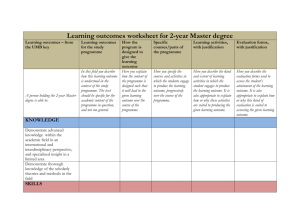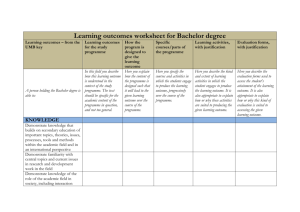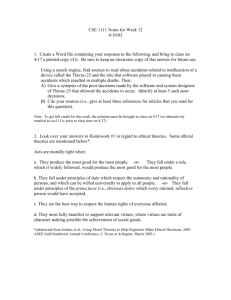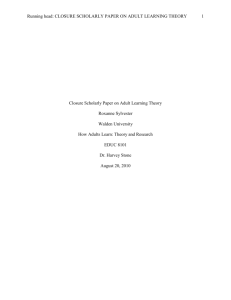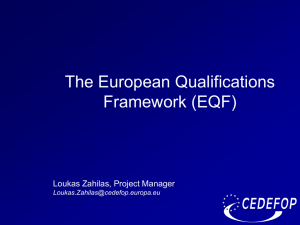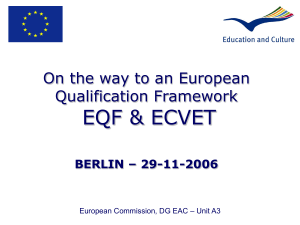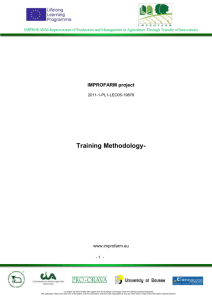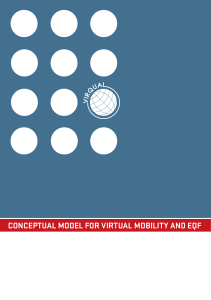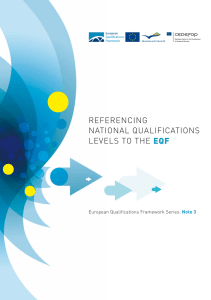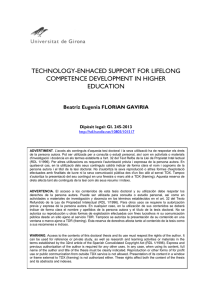Læringsutbytteskjema for 5-årig mastergrad
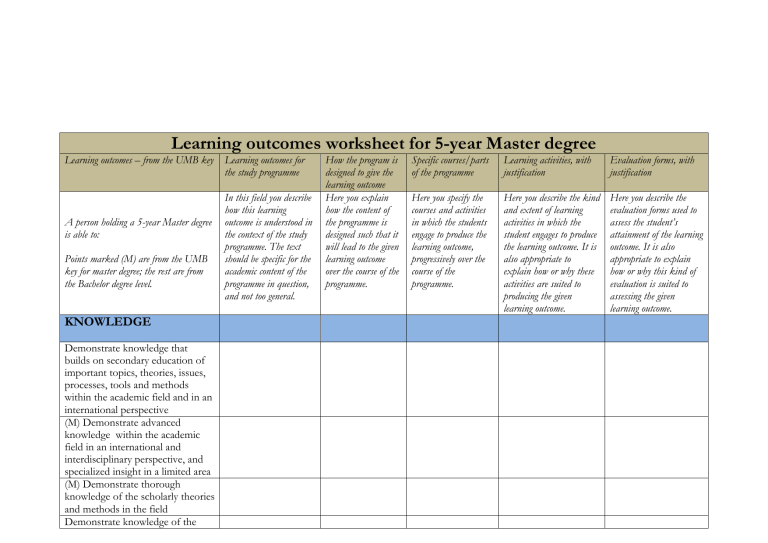
Learning outcomes worksheet for 5-year Master degree
Learning outcomes – from the UMB key Learning outcomes for How the program is Specific courses/parts Learning activities, with the study programme of the programme justification
A person holding a 5-year Master degree is able to:
Points marked (M) are from the UMB key for master degree; the rest are from the Bachelor degree level.
In this field you describe how this learning outcome is understood in the context of the study programme. The text should be specific for the academic content of the programme in question, and not too general. designed to give the learning outcome
Here you explain how the content of the programme is designed such that it will lead to the given learning outcome over the course of the programme.
Here you specify the courses and activities in which the students engage to produce the learning outcome, progressively over the course of the programme.
Here you describe the kind and extent of learning activities in which the student engages to produce the learning outcome. It is also appropriate to explain how or why these activities are suited to producing the given learning outcome.
KNOWLEDGE
Demonstrate knowledge that builds on secondary education of important topics, theories, issues, processes, tools and methods within the academic field and in an international perspective
(M) Demonstrate advanced knowledge within the academic field in an international and interdisciplinary perspective, and specialized insight in a limited area
(M) Demonstrate thorough knowledge of the scholarly theories and methods in the field
Demonstrate knowledge of the
Evaluation forms, with justification
Here you describe the evaluation forms used to assess the student’s attainment of the learning outcome. It is also appropriate to explain how or why this kind of evaluation is suited to assessing the given learning outcome.
role of the academic field in society, including interaction with other academic fields and contribution to environment and sustainable development.
Demonstrate familiarity with central topics and current issues in research and development work in the field
Demonstrate familiarity with and explain the need for new thinking and innovation processes in the field
Demonstrate insight into relevant academic and professional ethical issues
Demonstrate knowledge of the history, traditions, distinctive character of the academic field
SKILLS
Apply academic knowledge and relevant results of research and development work to practical and theoretical problems in the field and make well-founded choices
(M) Apply knowledge to new areas within the academic field
(M) Carry out interdisciplinary analyses of issues and evaluate solutions related to environment and sustainable development in
collaboration with colleagues from other academic fields
(M) Analyze existing theories, methods and interpretations in the field
(M) Analyze academic problems on the basis of the history, traditions, distinctive character and place in society of the academic field
Find, evaluate and refer to information and scholarly subject matter and present it in a manner that sheds light on an issue
(M) Analyze and critically evaluate various sources of information and use them to structure and formulate scholarly arguments
Use relevant scholarly tools, techniques and forms of communication
(M) Use relevant methods for research and development work in an independent manner
(M) Analyze relevant academic, professional and research ethical issues
(M) Contribute to new thinking and innovation processes
GENERAL
COMPETENCE
Manage his/her own learning activities with autonomy
(M) Continue studies in a manner that is largely self-directed and autonomous
Update his/her knowledge in the field
Reflect upon his/her own academic practice and adjust it under supervision
Participate in and contribute to intercultural communication in an
international study environment
(M) Communicate and collaborate in academic work in an international study- or work context
Plan and carry out varied assignments and projects (over time, alone or as part of a group) in accordance with academic and professional ethical requirements and principles
(M) Work independently on practical and theoretical problems
(M) Apply his/her knowledge and skills in new areas in order to carry out advanced assignments and projects
(M) Carry out an independent, limited research or development project under supervision and in accordance with applicable norms for research ethics
Communicate important academic subject matter (theories, problems and solutions) in writing, orally, and through other relevant forms of communication
(M) Communicate extensive independent work and use the language and terminology of the academic field
Exchange views and experiences with others with a background in
the field and contribute to the development of good practice
(OPTIONAL, from EQF)
Exchange views and experiences with non-specialist audiences
(M) Communicate about academic issues, analyses and conclusions in the field, both with specialists and the general public
(OPTIONAL, from EQF) Manage professional activities or projects, take responsibility for decision making in unpredictable work or study contexts and manage competence development in a group of colleagues
(M) (OPTIONAL, from EQF)
Lead and contribute to the strategic development of complex work or study environments
.
(M)(OPTIONAL, from EQF)
Take responsibility for contributing professionally in a work or study environment, and review the strategic performance of teams
